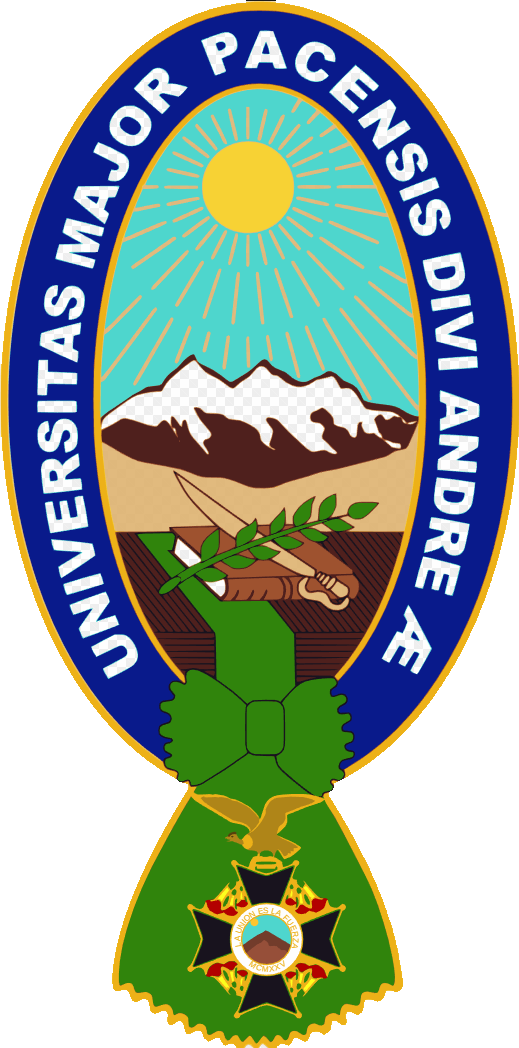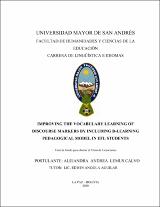Mostrar el registro sencillo del ítem
Improving the vocabulary learning of discourse markers by including b-learning pedagogical model in efl students
| dc.contributor.advisor | Angola Aguilar, Edwin Rolando, tutor | |
| dc.contributor.author | Lemus Calvo, Alejandra Andrea | |
| dc.date.accessioned | 2021-11-18T14:59:07Z | |
| dc.date.available | 2021-11-18T14:59:07Z | |
| dc.date.issued | 2020 | |
| dc.identifier.uri | http://repositorio.umsa.bo/xmlui/handle/123456789/26700 | |
| dc.description.abstract | In colleges, universities, institutes, or any other place where a second language is taught, the same problem exists: students feel frustrated because they cannot communicate their ideas orally and by writing completely. Also, when reading, they do not understand the texts because they do not have a wide range of words that allow them to carry out this process. Vocabulary is considered, by many authors, a crucial factor in the acquisition of a second language. In this sense, Richards (cited in Rodriguez and Sadoski, 2005) mentions that the vocabulary is relevant in learning a second language, and it has critical importance for the learner of a foreign language. Nation (2001) says that when you learn another language, the materials are not as important (when teaching reading, speaking or listening) as it is the vocabulary. Also, he adds that you need to write a simple sentence or a paragraph. Likewise, Horwitz (cited in Yang, 2010) found out that students consider the acquisition of vocabulary the most crucial part of learning a language. This is why it is important to study the way learning is acquired since, without vocabulary, it is impossible to communicate in any language. Wilkins (cited in Hasbún, 2005), states: “With little grammar, we can transmit; but without vocabulary cannot communicate anything”.However, according to McGregor (2006), today students do not have enough time in class to master their speaking skills, or they may have anxiety problems in the classroom, so they face difficulties interacting in a real situation due to a lack of practice in classrooms. Therefore, although English is one of the most interesting languages to study, and is spoken throughout the world, communication problems related to the learning process affect student's abilities to speak in practical situations. In order to promote the autonomous development of skills, in the vocabulary handling of the discourse markers of English as a foreign language, and facilitating complementary exercise, the present work implements a blended learning or b-learning approach (also called hybrid or completed in a mixed way) through a virtual social network. The b-learning approach is understood as a type of formal education in which students learn, at least partially, through content in a computerized digital version, whether online or not.6 This implies that classroom methods are combined with activities that require the use of new information and communication technologies, looking for inquiring about the results obtained in the development of linguistic skills after the implementation of focus on English students. | es_ES |
| dc.language.iso | es | es_ES |
| dc.subject | VOCABULARY FACEBOOK | es_ES |
| dc.subject | TEACHING LEARNING | es_ES |
| dc.title | Improving the vocabulary learning of discourse markers by including b-learning pedagogical model in efl students | es_ES |
| dc.type | Thesis | es_ES |
| dc.thesisdegreegrantor | Universidad Mayor de San Andrés. Facultad de Humanidades y Ciencias de la Educación. Carrera de Lingüística e Idiomas. | es_ES |
| dc.thesisdegreename | Licenciada en Lingüística e Idiomas | es_ES |

